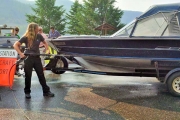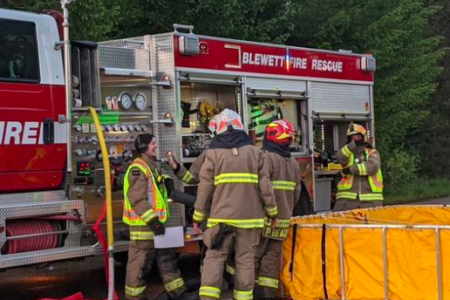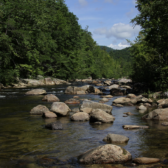B.C. GETS BOOST IN FIGHT AGAINST INVASIVE MUSSELS
Columbia Basin Trust is helping the province to double the number of mobile decontamination units aimed at stopping invasive mussels from entering British Columbia waterways, thanks to $360,000 in new funding.
This new partnership, in the Ministry of Environment led Invasive Mussel Defence Program, also includes support from Columbia Power Corporation, FortisBC and the four local invasive species councils operating in the region East Kootenay Invasive Plant Council, Central Kootenay Invasive Species Society, Columbia Shuswap Invasive Species Society and the Northwest Invasive Plant Council.
“Preventing the threat of invasive mussels is critical to protecting our waterways for environmental, economic and recreational reasons, and has been identified as a priority by the residents that live here,” said Neil Muth, president and CEO, Columbia Basin Trust.
“Increasing the level of protection in this region is key and we are pleased to support the prevention efforts this summer to keep mussels out of the Columbia Basin.”
The new resources mean an additional three mobile inspection and decontamination crews will be dedicated to stopping and ensuring boats are free of mussels.
The teams will be based in Cranbrook, Valemount and Nelson, to target major entry points from Alberta and the U.S. The new teams join three other crews that are already operational, doubling the number of mobile units dedicated to protecting B.C.s lakes and rivers against the threat of quagga and zebra mussels.
The decontamination units allow auxiliary conservation officers, who are trained to identify mussel-infested boats, to decontaminate boats and trailers entering B.C.
The teams also respond to boats identified as concerns by the Canada Border Services Agency, and partner agencies in Alberta and the U.S. The mobile units move between border locations, focusing on high-traffic routes and have the ability to quickly respond to any reports of potential threats called in through the provincial Report All Poachers and Polluters line.
The addition of these specialized mussel detection teams further enhances the provincial early detection and rapid response program for invasive mussels. This includes supporting education and outreach activities, such as the Clean, Drain, Dry program being delivered by the invasive species councils.
Aquatic invasive species, such as zebra and quagga mussels, pose a significant threat to Canada’s freshwater ecosystems and critical infrastructure such as hydroelectric and drinking water facilities.
No zebra or quagga mussels have ever been found in B.C. waterways, and the Province is hard at work ensuring it stays that way.
Photo Caption: Ember Heidt, Compliance and Enforcement Officer with the Conservation Officer Service demonstrates how to decontaminate a boat with suspected invasive mussels. — Submitted photo


























